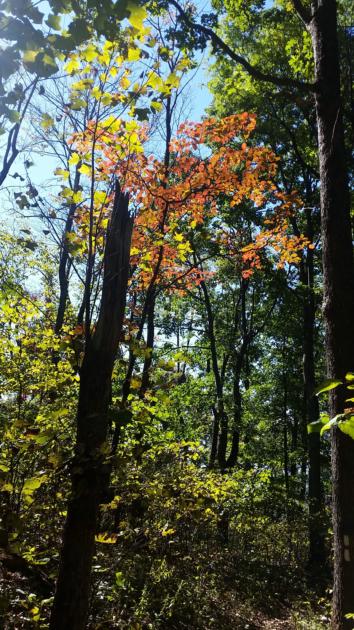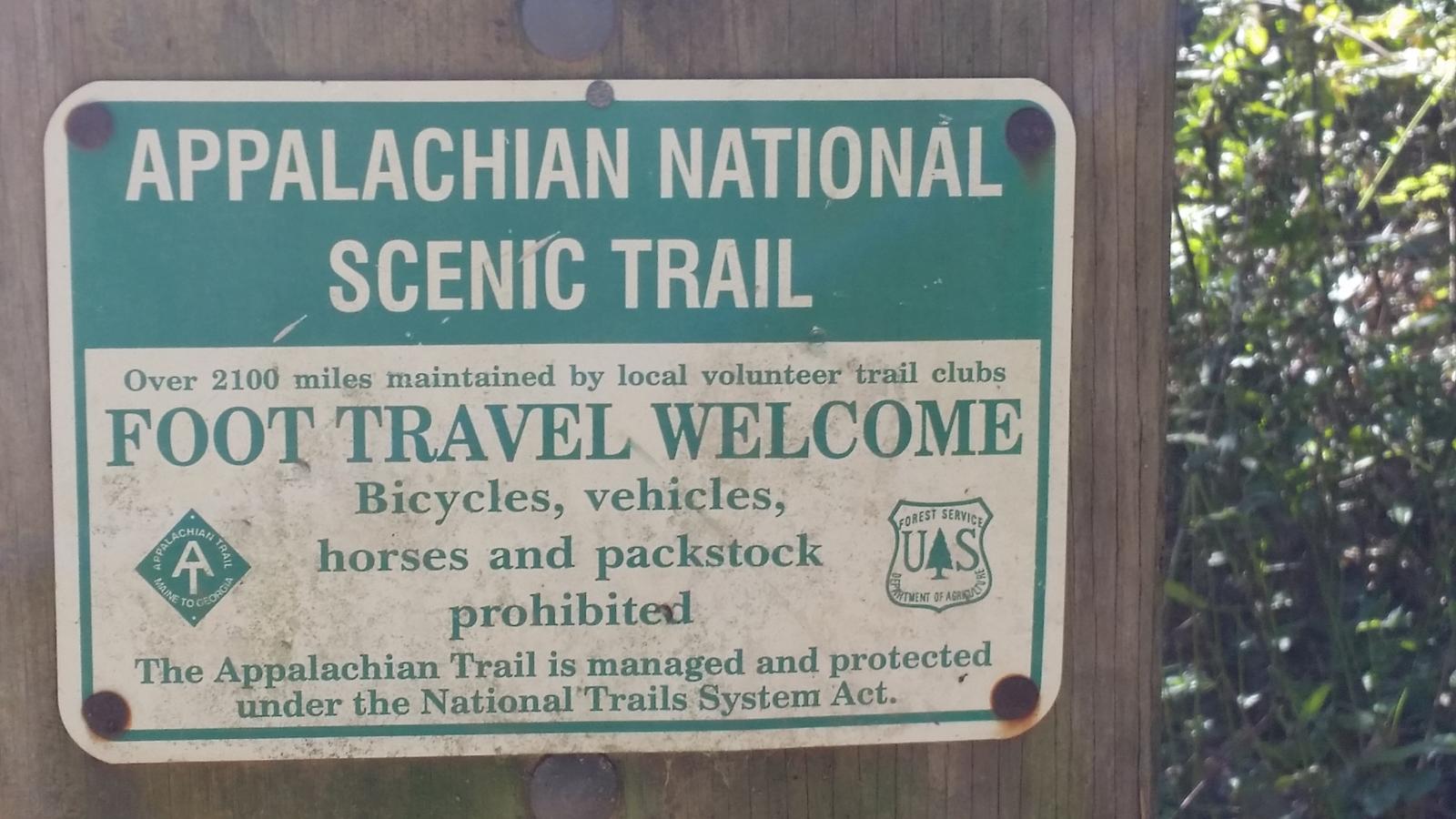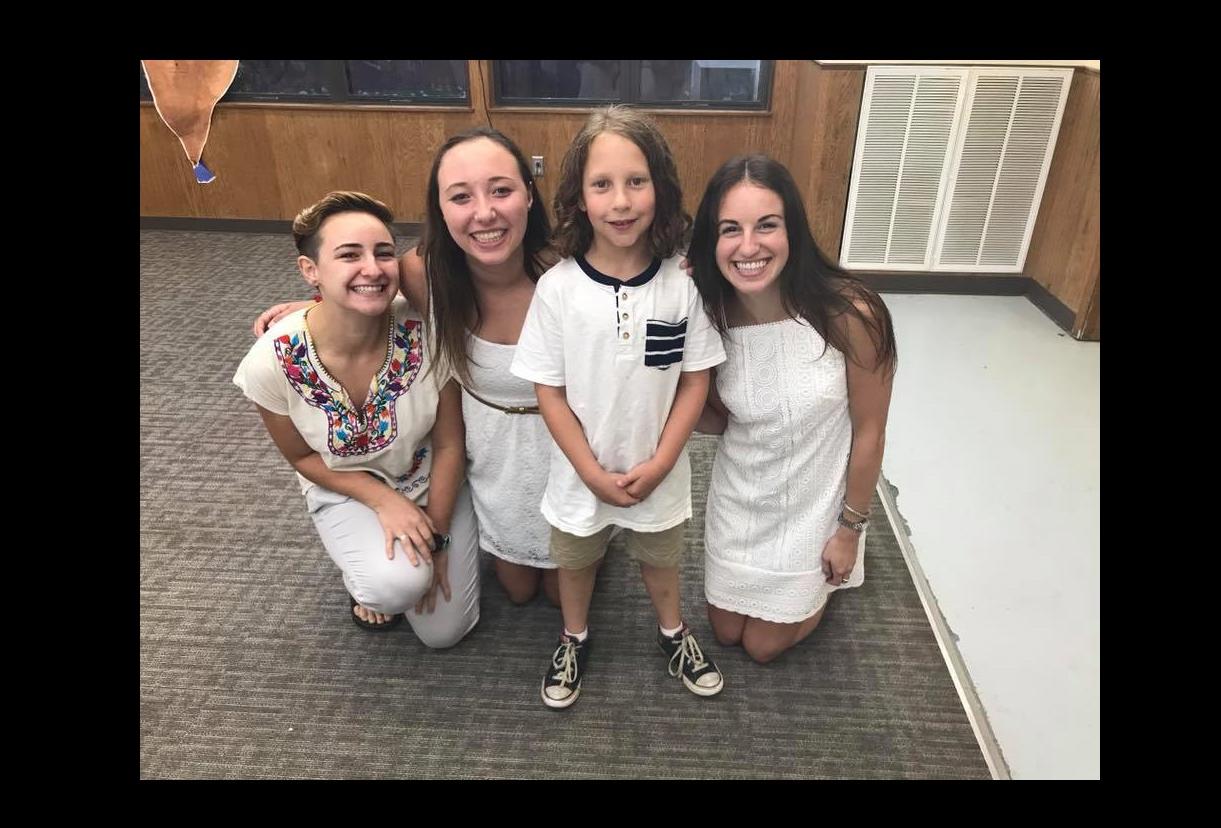I landed at the Roanoke-Blacksburg Regional Airport and quickly set off on a mission. I traveled to Virginia that morning in my capacity as an ISJL Education Fellow, ready to spend a weekend working with the local Jewish community—but I was there early, and had a rental car (an immense minivan, this time around) and several hours to unwind before I needed to head to Shabbat services.
I was eager for adventure. I navigated towards a trailhead, filled my water bottle, and anticipated the thrill and joy to come: a two-hour hike along the Appalachian Trail.
I love playing outside. From casually throwing around a Frisbee with my siblings to my summers as a camper and counselor at Camp Olin-Sang-Ruby-Union-Institute, I feel spending time in nature enriches my character. At OSRUI, in particular, I fondly recall my adventure trips as a part of the Moshavah program and my experiences on Tour La’Agam, a biking trip around Lake Michigan. Exploring these new places with my friends was special- we came together to make community on unexpected sandbars and gorgeous bluffs.
Interactive, adventurous time outdoors is great – but I also appreciate tranquil time with nature, on my won. I went on my first solo hike in Kettle Moraine State Forest during a three-day backpacking adventure: one by one each camper set out along the path in spaced intervals. While seclusion did not initially seem enticing, my trek alone in nature became a highlight of the trip. I was enveloped in the trees’ vastness and anonymity. The fact that I was alone only heightened my consciousness of my senses, and my ability to openly reflect. That first solo hike inspired me to embrace opportunities to overwhelm myself with the environment and isolate myself from social and material distractions. Thus, it was no accident that I began a walk in the woods without a map and in an unfamiliar state.
 I maneuvered through dense forest and crossed a railroad track before finally reaching the start of the Appalachian Trail. Over the next two hours, I gradually wandered the steep path. I never encountered any other hikers. While others likely enjoyed the path that day, I savored the intimacy the forest appeared to offer only to me. I remember that one of the most challenging hills revealed a clear outline of central Virginia’s mountainous region. At its crest, I paused and admired the vantage point, its perspective, form, and light. There are very few moments in the day when we actively observe in this manner. Fast-paced routines diminish our motivation to question and appreciate ecological wonders. It is only when we break out of prescribed patterns that we can view nature with inquisitive energy.
I maneuvered through dense forest and crossed a railroad track before finally reaching the start of the Appalachian Trail. Over the next two hours, I gradually wandered the steep path. I never encountered any other hikers. While others likely enjoyed the path that day, I savored the intimacy the forest appeared to offer only to me. I remember that one of the most challenging hills revealed a clear outline of central Virginia’s mountainous region. At its crest, I paused and admired the vantage point, its perspective, form, and light. There are very few moments in the day when we actively observe in this manner. Fast-paced routines diminish our motivation to question and appreciate ecological wonders. It is only when we break out of prescribed patterns that we can view nature with inquisitive energy.
Slightly hungry, I retraced my steps off the trail back to my waiting car and the work weekend ahead. As I studied with congregants and ran programming with young students, my thoughts (and calves) repeatedly returned to the afternoon solo hike. The simple act of spending time exploring the forest felt reinvigorating. How could I transmit the passion I felt in the outdoors into my work in southern Jewish communities?
A line from Talmud Taanit 23a came to mind: “I found a fruitful world, because my ancestors planted it for me. Likewise I am planting for my children.”
Both education and environmental wellness require the sowing and planting of seeds. Both also require the accountability of a community. An effective teacher is one who illustrates the mistakes of the past and inspires students to repair the world. Like a trail at the peak of autumn, the classroom can be a majestic place where we practice listening, engage with reflection, and develop identity.
This hike wasn’t a separate adventure from my Education Fellow visit. The trail I hiked led me right back to the world of Jewish life and learning. Onwards, to our next adventures!



